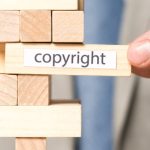
Copyright protection on streaming platforms
Streaming platforms have transformed the way we consume audiovisual content, facilitating access to a vast repertoire of films, series, music and documentaries from anywhere and at any time. However, this revolution in content distribution poses significant challenges in terms of copyright protection. As streaming becomes the preferred medium for accessing entertainment, it is essential to understand how copyright is protected on these platforms, what regulations apply and how audiovisual laws attempt to keep up with technological evolution .
Licenses and content
One of the fundamental pillars of copyright protection on streaming platforms is the proper use of licenses. Licenses are contracts that allow platforms to use copyrighted content legally. These agreements determine how, where, and for how long specific content can be distributed.
There are several types of licenses that can be applied in the streaming environment . However, the most common ones are the following:
- Streaming License: this license allows the platform to store and stream content on its servers, facilitating on-demand access to users.
- Distribution License: authorizes the platform to distribute the content to users, either through direct streaming or download.
- Synchronization license: specific to music, it allows platforms to use musical pieces in combination with images, as in the case of films, series or advertisements.
- Broadcasting license: refers to the transmission of live or real-time content, similar to a television broadcast.
Streaming platforms, managing these licenses correctly is vital not only to operate legally, but also to ensure that creators and rights holders receive adequate compensation for the use of their works. These licenses cover not only copyright, but also related rights, such as performers’ rights and public performance rights.
Regulation for platforms
streaming platforms . These platforms operate globally, meaning that content available in one country may be subject to different regulations in another. This has led to the need for international agreements and harmonization of laws to ensure that copyrights are respected regardless of the location of the user or the service.
In the European Union, for example, Directive (EU) 2019/790 of the European Parliament and of the Council of 17 April 2019 on copyright and related rights in the digital single market and amending Directives 96/9/EC and 2001/29/EC, is an effort to modernise copyright laws and adapt them to the digital environment. This directive introduces new obligations for streaming platforms , including direct liability for the content they host, meaning that these platforms must obtain the necessary licenses before making any content available to the public.
In addition, service providers must implement appropriate measures to prevent unauthorized content from being uploaded to their platforms. This includes the use of content filtering technologies and the implementation of notice and takedown systems, which allow rights holders to request the removal of content that infringes their rights.
The regulation also focuses on ensuring that creators are fairly compensated for their work. This includes implementing fair fees and transparency in remuneration practices. Platforms must provide rights holders with detailed reports on the use of their works and the revenue generated, thus ensuring that creators can share in the profits made from their content.
In some cases, national laws have introduced mandatory remuneration rights, which ensure that creators receive a fair share of the revenue generated by the exploitation of their works on digital platforms. This is the case in countries such as France and Germany, which have adopted legislation to protect the rights of authors and artists in the digital environment.
Audiovisual law
In the European Union, Directive (EU) 2018/1808 of the European Parliament and of the Council of 14 November 2018 amending Directive 2010/13/EU on the coordination of certain provisions laid down by law, regulation or administrative action in Member States concerning the provision of audiovisual media services in the internal market (CADS) lays down the groundwork for the regulation of audiovisual services in the European single market. This directive has been updated to include streaming platforms , requiring them to offer a minimum share of European content in their catalogues. In addition, they are required to contribute financially to European audiovisual production, either through direct investments in productions or through contributions to national funds. This regulation seeks not only to protect copyright, but also to promote cultural diversity and support the European audiovisual industry.
Ultimately, copyright protection on streaming platforms is a complex issue that requires a delicate balance between the interests of creators, platforms and consumers . Through well-managed licensing, appropriate regulations and a solid legal framework, the aim is to ensure that authors’ rights are respected while encouraging innovation and access to diverse and quality content.
At Letslaw we are experts in intellectual property, so we can provide you with advice on everything you need.

Carmen Araolaza es abogada especialista en derecho digital, propiedad intelectual y protección de datos.
Graduada en Derecho con especialidad TIC por la Universidad de Deusto, completó su formación con un máster en acceso a la abogacía y otro en propiedad industrial, competencia y nuevas tecnologías en ISDE Law & Business School y PONS. Asesora en comercio electrónico, marketing digital y derecho de la competencia, con un enfoque dinámico y orientado al entorno tecnológico.







